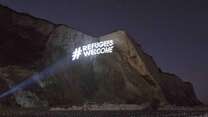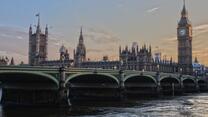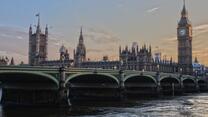When refugees flee their country of origin, most settle in neighbouring countries, with 75% of refugees worldwide hosted by low and middle-income countries.
However, some refugees move further perhaps because they wish to join family members who can provide them support, or because their needs or safety cannot be met in their country of displacement.
Many of the highest refugee hosting countries face difficulties such as conflict, economic instability, hunger and health crises that limit their ability to adequately support and protect refugees.
The Refugee Convention, which the UK proudly helped to craft, allows refugees to seek protection in any country which is a signatory, through making an asylum claim. However, there is no asylum visa to allow someone to travel on a regular route to claim this right.
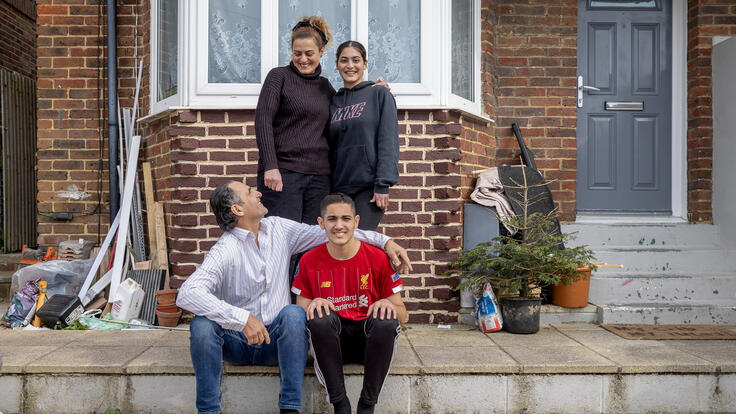
This is why safe pathways to protection - also known as ‘legal pathways’ or ‘safe routes’ - are so important. These are specific tools designed to help people relocate from a place where they are at risk, to another country of relative safety where they can begin to recover and rebuild their lives.
Every safe pathway offers a vital lifeline, giving people a chance to make a home, and contribute to their new communities. At the same time, they are an important expression of international solidarity that can alleviate pressure on major refugee-hosting countries like Turkey, Lebanon, Pakistan and Uganda.
But what are these ‘safe routes’ in the UK and how do they work? We explain four myths that threaten the safety of refugees:
MYTH: There are plenty of safe routes available to any refugee
FACT: There are very few safe routes for refugees to travel to the UK. The few existing pathways are extremely restricted by nationality and number.
There is also no way for someone to claim asylum in the UK unless they are physically in the country, and there is currently no asylum visa to allow someone to enter regularly in order to access this legal right.
The ‘safe and legal’ routes currently in practice in the UK are:
- Resettlement programmes
- Bespoke schemes
- Refugee family reunion
Resettlement programmes
Resettlement covers schemes which facilitate travel directly to other countries (including the UK) for refugees with specific heightened needs that cannot be met in the country they are displaced in. They are run in cooperation between the UN Refugee Agency (UNHCR) and the UK Government.
The main UK scheme is the UK Resettlement Scheme (UKRS), introduced in 2020.
Following the change of power in Afghanistan in 2021, the UK Government started a specific resettlement scheme for Afghans affected, this is the Afghan Citizens Resettlement Scheme Pathway 2.
To be considered, a person must have fled their home country due to conflict or persecution and have entered another country. This is often difficult and dangerous. They must then register with UNHCR.
A person cannot request or apply to be resettled, they can only hope to be selected according to the protection criteria of the resettlement programme (for instance a specific medical need that can’t be met in the country of displacement), and if enough resettlement places have been offered.
The process can take months, and in some cases years, during which time the person must wait in the original country of displacement.
While resettlement is vital, there are narrow eligibility requirements, no way to apply, and extremely limited places, which means that less than 1% of the world’s refugees can hope to be resettled.
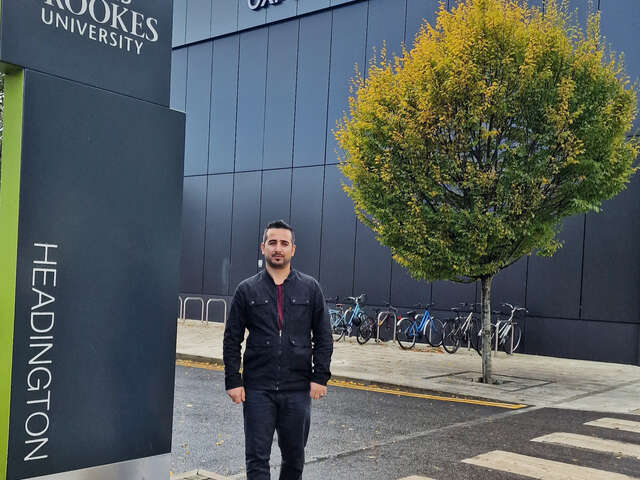
There are also two, smaller, schemes run in line with resettlement in the UK: the Mandate Scheme (two people arrived on this scheme in 2021, and four in 2022) and a Community Sponsorship Scheme (400 people arrived on this scheme in 2021 & 2022 combined).
Bespoke schemes
Bespoke schemes have been designed as a specific response to events in Ukraine and Afghanistan and are an important way to bring some Ukrainians and Afghans to safety.
There are currently two pathways for people fleeing the war in Ukraine to come to the UK. Homes for Ukraine is based on having someone in the UK willing to provide a home, while the Ukraine Family Scheme is based on having family in the UK.
There is also a visa route for people from Afghanistan who have previously worked for the UK Government and are therefore at serious risk. This is called Afghan Relocations and Assistance Policy (ARAP).
In January 2022, the UK opened the Afghan Citizens Resettlement Scheme (ACRS) which is separate to the ARAP, and is for those who supported UK efforts in Afghanistan and for some vulnerable groups.
It has three pathways. ACRS 1 is closed, and was used for those on initial evacuations. ACRS 2 is a Resettlement Scheme (covered above). ACRS 3 is for British Council Contractors, GardaWorld contractors and Chevening alumni in the first phase, and due to be expanded to other vulnerable groups in the second phase.
Refugee family reunion
Family reunion is a rights-based route which allows refugees who have already fled and been given refugee status in another country to bring immediate family members to join them.
Where a person has refugee status, they are entitled to bring their partner and children to the UK if they meet the requirements. Family reunion is a crucial route for refugees to be able to reunite with their families. However, the applications can be overly complex and difficult to navigate.
When claims are made, the processing of these is extremely slow, with a report by the Refugee Council in January 2023 showing family reunion visas are down to 36% below pre-pandemic level. There are also limitations and there is currently no provision in the rules for children to apply to bring their parents or other family members to the UK.
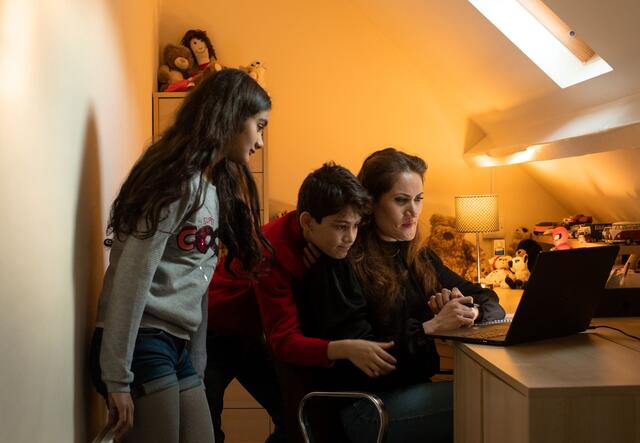
MYTH: The UK Government safe routes are functional and work in practice
FACT: Access to schemes is largely restricted to three nationalities. For any other nationality you must either have a specific heightened need to meet the resettlement criteria (and get selected for one of the limited spaces available) or an adult family member already in the UK with refugee status, to access an official route.
The UK Government is also failing to deliver on refugee resettlement commitments. In 2019, it pledged to resettle 5,000 refugees in the first year of the UK Resettlement Scheme (UKRS).
However, implementation of the UKRS was delayed until 2021 due to COVID-19. Since its launch, only 2,543 refugees have been resettled over four years, just over half of the initial one-year target. This falls abysmally short of meeting the UK's pledge. Many countries globally have also failed to fulfil refugee resettlement pledges, with only a third of 2019 commitments fulfilled.
The UK Government has also failed to provide protection for Afghans. Despite pledging in 2021 to resettle 20,000 people via the Afghans Citizens Resettlement Scheme, it has brought very few people to safety in the UK since initial evacuations; for the year ending September 2023, only 234 people were able to arrive on this scheme. In the same period almost 9,000 Afghans were left with no other option to reach the UK but to cross the Channel.
As for family reunions, applications can be overly complicated and take months or even years to process, while children cannot currently apply to bring their parents or other family members to the UK.
For anyone else, there is currently no way to claim asylum in a country from outside of it, which forces people in desperate situations to make dangerous journeys - such as small boat crossings - in order to seek safety.
There is also currently a large backlog of asylum claims that need to be processed with government figures showing 98,599 people were waiting for asylum claims to be processed on 28th December 2023. These claims often take years to reach a decision. Only 1% of asylum seekers received a decision on their application in the past 12 months.
In the meantime, asylum seekers awaiting a decision are not allowed to work. Not being able to generate an income means that they struggle to survive on £5.84 per day while they await the outcome of their claim which can take years.
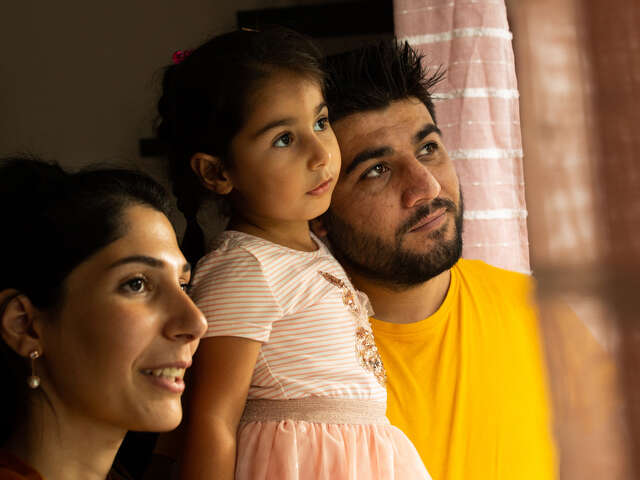
MYTH: Deterrence strategies will stop small boat crossings
FACT: There is little evidence that deterrence measures work, and focusing on deterrence overlooks the reasons why people make the journey in the first place and their lack of alternatives, whilst also undermining refugee rights.
The former UK government’s ‘Illegal Migration Act’ - which has now effectively ended - intended to deter Channel crossings by detaining asylum seekers who arrive on small boats, before removing them to a third country, like Rwanda.
However, without providing safe pathways for displaced people to claim asylum, refugees fleeing violence and persecution will continue risking their lives on small boats in desperate search of safety.
Deterrence measures do not address why asylum seekers resort to dangerous crossings - because there are no existing means to safely apply for refugee status in the UK without reaching the country first.
Creating alternative routes like asylum visas would allow vulnerable populations to be granted a visa - based on an initial assessment - allowing them to travel safely to the UK to make their asylum application, rather than having to take a dangerous journey to do this. Rather than investing in inhumane solutions, the UK Government should uphold asylum seekers lawful right to claim refuge once arriving in the UK.
MYTH: The UK government is doing all it can to support refugees
FACT: Global stakeholders, including the UK, have yet to adequately scale up their efforts to expand safe and regular routes for refugees to reach protection, despite concerns about dangerous journeys.
The IRC is calling on the UK government to:
- Uphold the right to asylum, by processing claims and not punishing people who arrive irregularly in the UK.
- Scale up safe routes to ensure fewer people take dangerous journeys. No one wants to see asylum seekers forced to make perilous journeys in search of safety. However, many desperate people feel like they have no other options as there is currently no safe way to apply for asylum from outside the UK.
- Invest in resettlement schemes, asylum visas, and family reunion schemes which all offer regular and orderly routes to protection for refugees. Expanding commitments to resettlement places, for example by providing an additional 10,000 refugees a year under the UK Resettlement Scheme, would provide a lifeline for refugees facing extreme vulnerabilities.
- Strengthen the asylum system to ensure that we can respond to those seeking safety in a humane, effective, and organised way. All claims must be heard fairly, decisions must be made quickly, and we must allow the people at the heart of the system to move on with their lives.
- Commit at least half of the foreign aid budget to fragile and conflict affected states, where humanitarian needs are greatest and the impact of the limited aid budget can be the greatest too.
What is the IRC?
The International Rescue Committee (IRC) helps people affected by humanitarian crises to survive, recover and rebuild their lives. We deliver lasting impact by providing health care, helping children learn, and empowering individuals and communities to become self-reliant, always with a focus on the unique needs of women and girls. Our work spans more than 40 crisis-affected countries, and we provide resettlement, asylum, and integration services in communities across the United States and Europe, including supporting refugees rebuilding their lives in the UK.

